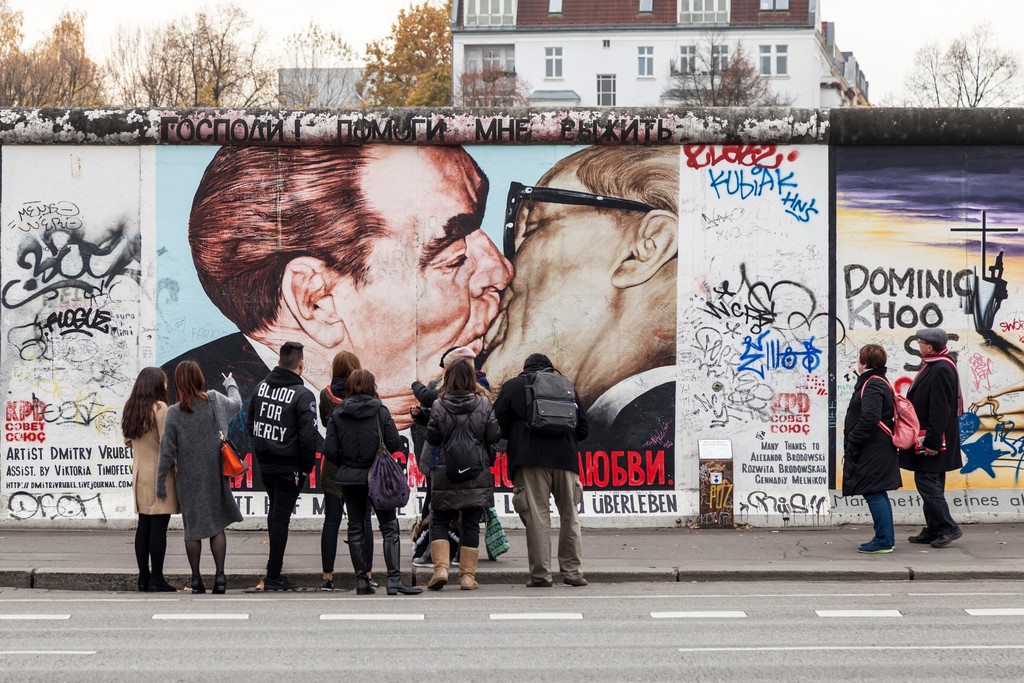The Wall may have fallen, but what did it leave behind? Ananya Sriram explores the legacy of the Wall three decades after its collapse.
From the first sledgehammer that struck the Berlin Wall to the rush of freedom and opportunity that followed, the 9th of November 1989 has become immortalised in history as the date when communism began its collapse, ushering in a new world order of peace and prosperity.
Heralded as ‘The End of History’ by historian Francis Fukuyama, for many the fall of the Berlin Wall, the most iconic reminder of the ideological barrier between East and West, represented a triumph of liberal values. Thirty years on, this sense of jubilation and optimism is somewhat harder to come by, if the muted celebrations in Berlin are anything to go by. What happened to the sheer euphoria that gripped East Berliners and the rest of the world just a few decades ago? Are the promises of liberalism already ringing hollow?
The fall of the Berlin Wall in 1989 was the first spark that ignited revolutions all across Eastern Europe. Known as the ‘Velvet Revolutions’ for their peaceful nature, mass protests brought about the fall of communist governments across the Eastern bloc, as well as the ultimate dissolution of the Soviet Union in 1991.
For many of these countries, the prevailing logic was that they would take the next step towards capitalism, reforming their economies into free-markets modelled on the West. The Western political economy was held up as the progressive ideal of an advanced society, and it was assumed that the Communist Bloc would have to play catch-up.
However, this assumption is built on the idea that development follows one linear timeline, that there is a prescribed path to economic success. The problem with capitalism being presented as the norm was that calls for a ‘third way’, or an alternative to capitalism more suited to Eastern European societies, were largely ignored. The arrogance of ‘West is best’ thinking led to widespread backlash from Eastern European politicians. Many outright rejected Western values, seeing them as an attack on their own cultures.

However, the idea of the West as a paragon of progress and innovation soon came crumbling down. Brought to its knees by the 2008 financial crash, the unipolar world order soon suffered a crisis in values, faith and belief. Demonstrating first hand that Western elites do not necessarily know best, the financial crisis compounded a lack of faith in the Western political economy, throwing the entire philosophy of capitalism and the free market into question.
With the aftershocks of 2008 still being felt today, the lack of results produced by the liberal world order has led many to question the idea of progress as a whole. As capitalism fails to address widening inequalities, a climate crisis and issues around migration, many are wondering what growth will actually bring to ordinary people.
In many formerly Communist countries, the answer seems to be very little. In Germany today, GDP per capita is 20% lower in the East than it is in the West, resulting in many in the East feeling ‘left behind’ by the process of reunification.
The failings of liberalism and capitalism have provided fertile ground for far-right Eastern European politicians to launch their attacks on the West. Maintaining a steady stream of criticism directed at liberal values has allowed these politicians to deflect from the increasingly authoritarian measures they are putting in place.
In Hungary, for instance, President Orban routinely lambasts the EU’s open stance on migration, yet has been quietly dismantling the country’s independent press. Rising nationalism, not only in Europe but across the world, has represented a significant challenge to the expected norms of modern politics.
More and more, the tide is turning against the ideas of neoliberalism, signalling the possibility of a fundamental existential threat to liberal democracy as we know it.
What’s clear is that the rising nationalism sweeping Eastern Europe is a backlash against decades of Western superiority. Loathe to blindly following a Western model – the failings of which are now becoming apparent – many Eastern European politicians see nationalism as a means to reclaim their cultural heritage and values. Faced with an ageing population and a record high levels of emigration from their brightest and youngest citizens, many Eastern European governments are finding themselves in desperate need of persuading their people to stay.
Reasserting their national identity provides one way to do this. Whether their plan will work, however, is unclear – as are the ultimate consequences of this renewed nationalism.

